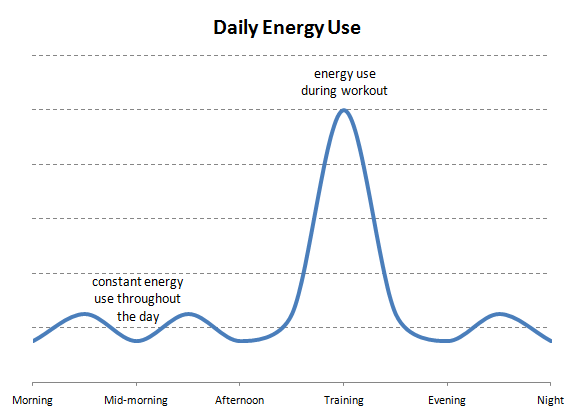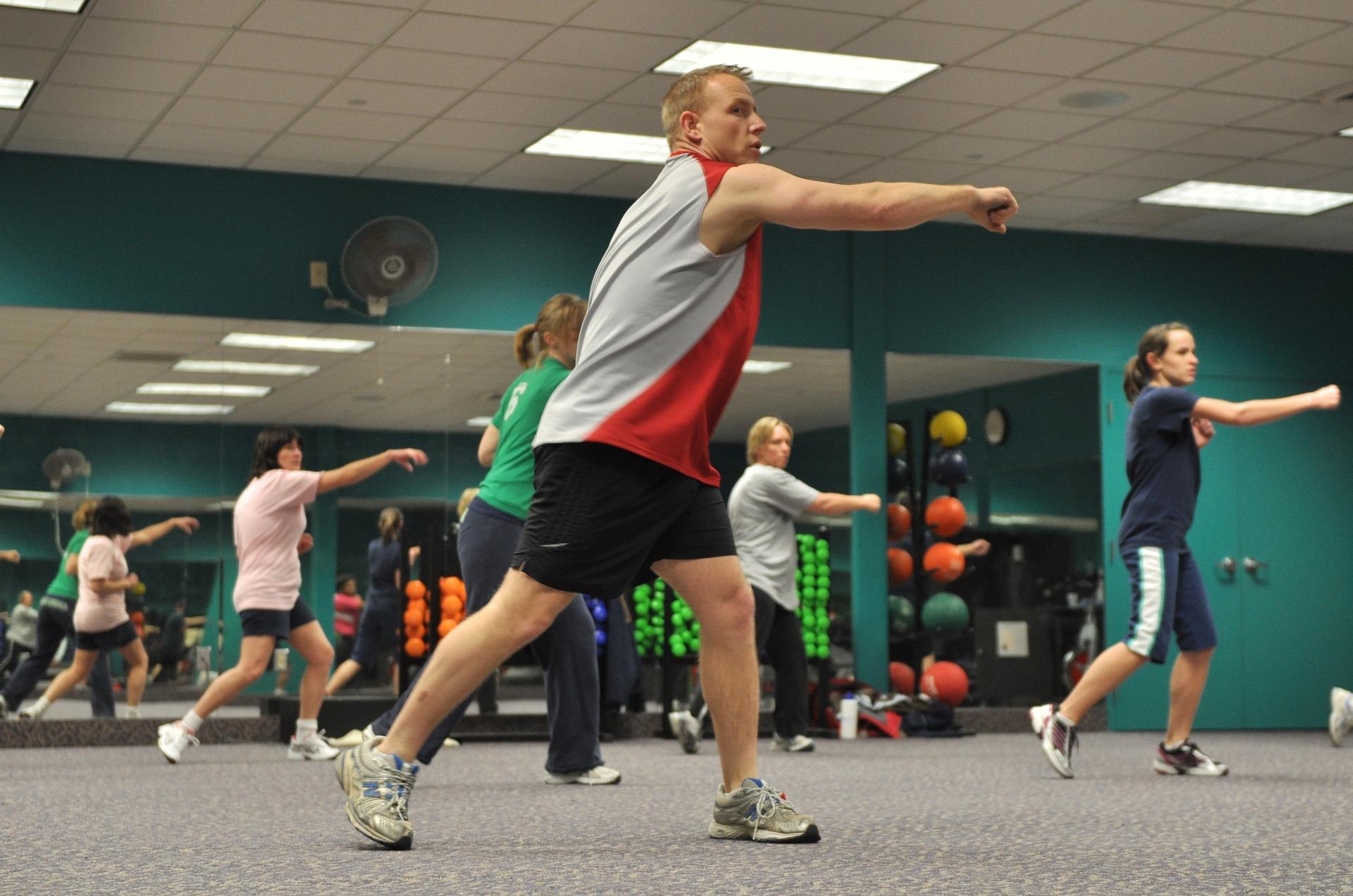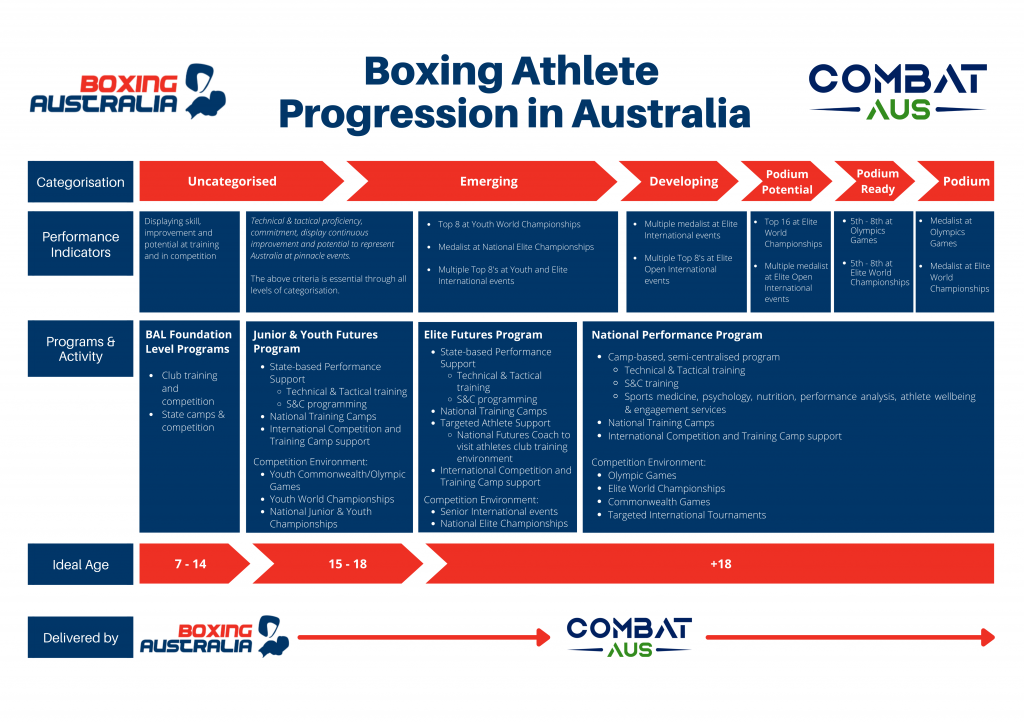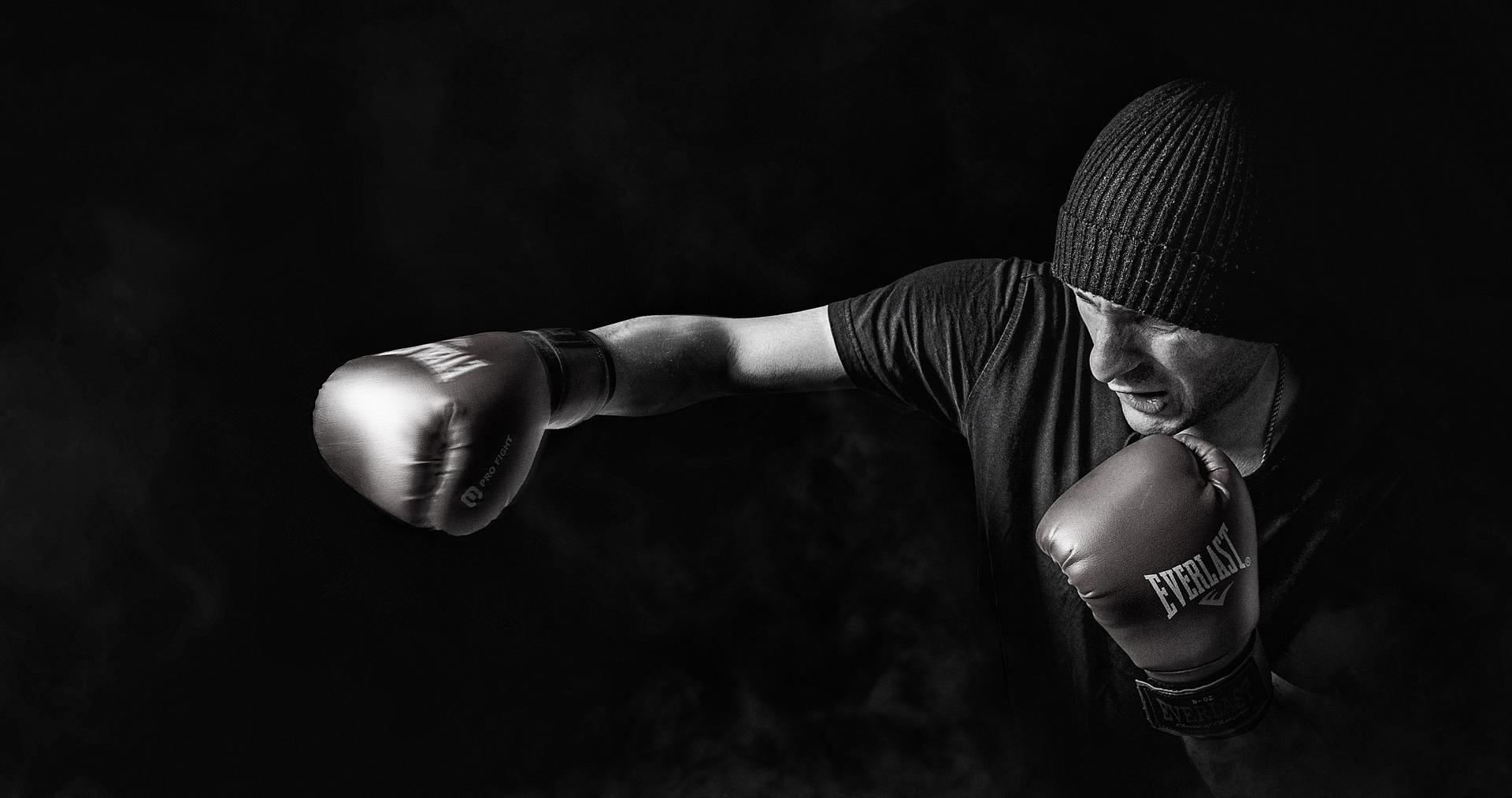"It is in the anonymous and mundane shadow of the training room, both a refuge and a workshop, where a fighter is forged. »Loïc J.D. Wacquant
Boxing is a sport enjoyed in different forms by hundreds of thousands of people across the world, including many in Australia.
Boxing Australia (BA) is the body that governs the sport in Australia, meaning that if you want to compete in tournaments and get in the ring you need to be signed up and train with a BA accredited coach. We'll look more at BA later on.
This noble sport attracts more and more followers each year, but before sweating it out on the skipping rope or giving their first uppercut in the ring, a world champion must first pay attention to their diet.
To gain muscle mass, gain weight, or lose weight (according to the category of athlete), and even with amateur boxing, you must pay attention to your daily calorie intake.
Fortunately, we are here to assist!

Why Should You Eat Before Boxing?
Practice for English, Thai, or Kickboxing should not be done on an empty stomach!

Not eating before classes or competition can result in loss of motivation, limiting the boxer's performance and increasing his recovery time and the risk of injury.
As with all combat sports, boxing, when practised regularly, requires a special diet. It is not a question of following just any diet to lose weight or gain muscles, it is rather a re-balancing of the foods you consume to achieve a balanced diet. Athletes need more nutrients to get the strength they need during practice and to aid their body build muscles and recovering faster.
An ideal diet must:
- Provide stamina during coaching
- Provide enough nutrients to promote weight gain and muscle building
- Below in fat, so you don't strain the body during digestion
A boxer's eating habits must adapt to their exercises. They must consume more, without eating too much. It can be difficult to know how to balance meals to avoid being hungry, but at the same time to not feel too heavy afterwards and suffer during a workout.
When Should You Feed to be in Top Form During Coaching?

Knowing when to eat is as important for an athlete as knowing what to eat!
Everyone knows that athletes must stay in good health by avoiding fast food and saturated fats, eating raw vegetables and fruits, and prioritizing a low-calorie diet.
But what we often neglect is the time of the day that we have meals.
Forget the 3 meals a day plan

The body uses power constantly throughout the day, but obviously, the peak energy expenditure is reached during your workout.
As you hit your punching bag or work your cardio by skipping rope, the number of calories your body absorbs increases sharply.
Thus, the diet of a boxer should closely follow the daily energy consumption. That's why, instead of the 3 big meals a day that are recommended during a standard diet, they should switch to eating 5 or 6 more reasonably sized meals.
When we consume too much, our body turns the excess into fat. If we cut calories but are still only eating 3 meals, we can feel hungry, and when we are hungry we consume too much at traditional meals, thereby accumulating more fat.
The main mistake is to wait too long between meals.
The longer we wait, the more hungry we are. We are, therefore, forcing our metabolism to slow down and increasing our fat storage since we would tend to overeat during the meals afterwards.
Pass to 6 meals a day

Six meals a day helps maintain a good level of stamina throughout the day. An athlete needs only 2 big meals a day: upon waking and 1h30-2h before working out.
It is necessary to start eating before being too hungry and to finish eating before being too full.
Between the two big meals, snacks can sort you out in any moments of hunger and assist you in maintaining a good strength level. The evening feed must be light to allow for recovery. If you can follow this plan, you won't be consuming any excess calories during the day, you'll just get the ideal amount that you need.
Have a feed or snack every two to three hours
It's a good idea to skip breakfast and eat it after your jog if you like to run in the morning. Running on a full stomach makes you feel nauseous, whereas running on an empty stomach can be helpful for losing weight and working on your abs.
The food you eat two hours before your training must be adapted to the duration of your training. If you only go to the gym for 30 minutes, limit this food intake. If you go for 3 or 4 hours, consume enough to last for the duration of the workout.
After your workout, it's ideal to eat within 30 minutes, to promote recovery and so you don't accumulate unnecessary fat.
Your trainer should go over nutrition with you; if s/he hasn't yet, you should ask to cover it in your next class.
Check for classes for kids here on Superprof.
What to Eat Before Boxing Training?
As we saw previously, snacking for a boxer is not only allowed but recommended! In fact, eating between main meals is beneficial in order to eat less and better.
But what should you eat on workout days?
Foods to Eat
The diet of a boxer is composed of several essential nutrients:
- Water in large quantities: it hydrates one's body and muscles to prevent cramps and aches. Also, don't wait until you are thirsty to drink. When you feel thirsty, you are already dehydrated and have lost too much water.
- Carbs which provide energy
- Proteins to build muscle and promote recovery
- Fats, but not just any kind, only the good ones!

Other nutrients must be present in a boxer's diet:
- Vitamins and minerals to boost the immune system and build strong bones
- Fibre to aid the digestive system and make you feel more full and, therefore, eat less (you can find fibre in green, leafy vegetables)
Take a look below at our extended guide to what to eat when working out.
Water
Water is obviously essential, and when I say water, it truly means water. Powerade or any other drinks cannot replace plain old water! It doesn't matter if you drink it straight from the tap or you drink bottles of mineral water, keeping your water intake up is absolutely vital.
You have to start when you wake up and drink a lot before you start. At least 3 litres of water a day. Do not exceed 6 litres in the day, however, as this can begin to cause problems for your body. Drinking too much water can be dangerous for brain function.
Carbohydrates
Boxers should eat natural carbohydrates, such as those found in sweet potatoes, peas, beans, wholegrain bread, lentils, oats, rice, fruits and honey.
A daily diet that consists of 4,000 calories should ideally have 1,800-2,200 calories from quality carbs. This equates to approximately 550g of food weight.
Look at the glycemic index of the carbohydrates you eat: choose complex carbs that provide low blood sugar levels while maintaining a consistent level of strength.
Protein
Excellent sources of protein include eggs, lean chicken, lean beef, fish (especially tuna, salmon, halibut, cod, and tilapia), milk curd and cheese, beans, peanut butter, lentils, hemp and soy. It’s better to buy lean meats in order to avoid extra saturated fat and cholesterol, especially if you eat lots of meat. Furthermore, to preserve the goodness in lean meats, try not to fry them and instead grill or poach them.
Proteins must be ingested while respecting 30% of the daily intake. More protein than this can lead to dehydration and the accumulation of toxins, whereas less protein than this can lead to fatigue and injuries.
White meat is lean meat. It should be prioritized for its lower fat intake. Fish, in addition, contains essential fatty acids which aid in proper brain functioning.
Fats
Good fats assist the body to maintain key internal body functions like cell building, energy supply, vitamin and mineral absorption, and more. These good fats are usually the unsaturated ones, also known as polyunsaturated and monounsaturated.
Essential fats must be obtained through nutrition, and are called omega-3 and omega-6 fatty acids. They’re important for keeping your bones and joints in good condition, as well as stimulating good brain health.
Excellent sources of omega fatty acids include olives and olive oil, seafood, nuts (like walnuts, cashews, almonds), coconut, avocado, and seeds (especially flax seed which is regarded as one of the best omega fat sources), as well as organic oils like macadamia oil, canola oil, or coconut oil. Flax oil or fish oil supplements can be taken to boost your omega-3 and omega-6 intake.
Bad fats that should be avoided are saturated fats, i.e. meats like pork, fatty beef, lamb, poultry with skin, as well as lard, and milk products like butter, cream and cheese.
Saturated fats are also found in fast food and junk food, so these restaurants are best avoided.
Fibre
Fibre is a type of carbohydrate that is typically found in whole grains, nuts and seeds, wheat bran, veggies and fruits, oats, and legumes. Fibre helps with digestion, bowel movement and keeps the body in good nick. This macronutrient is also great for regulating weight, as it makes you feel fuller for longer.
Foods to Avoid
Of course, there are foods to avoid if you want to be in top shape for training:
- Bad fats that are difficult to digest: such as fast food and pre-packaged products
- Fast-acting sugars: chocolate, candy, soft drinks, cakes, juices...
- Acidic foods
- Spicy foods
- Alcohol which causes dehydration
- Certain fruits with a high glycemic index: pineapple, dates, chestnuts, raisins, melon, watermelon
At all times, avoid taking dietary supplements. Everything we need can be found in nutritional food.
Power snacks can be used occasionally during workouts when you lose sodium and, therefore, get dehydrated, but don't make it a habit.
Are Cheat Meals Allowed?
It is almost impossible to deny yourself the foods you love.
If you happen to love good food, then good on you! However, if you can't resist a hamburger and chips or a greasy pizza, then all you'll be doing by banning these foods altogether is making you want them even more. Every once in a while, it is ok to treat yourself, so long as that approach works for you.
Some diets say that you can have one cheat meal a week, while others say that you can have an entire day of pigging out on your favourite foods. See what works for you, but most people find that having a 'free pass' day is a bit much as it can deprive you of all those great nutrients you've worked hard to ingest the rest of the week.
Check for kickboxing classes here on Superprof.
Some Pre-Workout Snacks Ideas
Mike Tyson and Floyd Mayweather also had to follow drastic diets before donning their mouthguards and getting ready for a heavyweight or lightweight fight in the ring.
The ideal meal, in order to build muscles, lose weight, and lose fat while feeling full, must be composed of:
- 45-65% of carbohydrates
- 10-35% protein
- 20-35% fat
Start with a boxing class today.

Of course, you should be eating lighter snacks before putting on your gloves and kicking, punching, and stretching at the club.
Here are some examples of snacks you can eat before a workout or fight:
- A banana
- Dried fruits
- Two slices of toasted bread with jam
- Dairy products such as yoghurt
- A bowl of cereals with skim milk
- Oatmeal with fruit
For a full meal two hours before you start, here's an example:
- 100g of pasta or brown rice
- 1 hard-boiled egg or a slice of lean ham
- 33 cL of water
- 1 fresh fruit: apple, grapes, pear, apricot, banana
Tip: Eating a fruit before the last evening meal can restore glycogen stores and rehydrate. Think about it!

What Should You Eat For Breakfast?
What you eat all depends on how many times a day you intend to train.
If you plan to train twice a day as a pro, then it's vital that you ingest the right nutrients at the right times.
The Live Strong website recommends that you "Consume a liquid carbohydrate pre-training supplement consisting of 60 to 70 per cent carbohydrates prior to your early morning workout. During your session, sip on one to two bottles of fluid replacement drink. Immediately following your workout, consume recovery fuel consisting of 70 to 80 per cent carbohydrate. For breakfast, consume a whole-wheat bagel with peanut butter, a banana and six egg whites."
What Should You Eat For Lunch?
For your daytime meals, Live Strong suggests: "For a mid-morning snack, eat an apple, a can of vegetable juice, almonds and a protein drink followed by a 12-inch turkey sub on whole-wheat bread with vegetables and cheese for lunch."
What does Floyd Mayweather eat in his diet?
The Telegraph, a UK Newspaper, reported on the sensation's diet, saying:
"Interestingly, Mayweather is perhaps not the shining example of how a boxer should eat. In an interview with New York Magazine, his former chef Quaina Jeffries spoke of how his love of fried hot dogs posed a challenge in preparing his body for a fight. Trying her best to make the meal nutritious, she would add oranges, orange zest and other spices. “We’re big on juice,” she told the magazine. And a typical juice for Mayweather at the time consisted of pineapples, oranges, strawberries, red peppers, red pears. “I slip in a carrot,” Jeffries confessed. “But I don’t tell him.”"
Of course, Mayweather maintained a much healthier diet when faced with some of his biggest fights! The paper goes on to discuss what a good example of a boxer's diet is.
"“Consistency is key,” says Matt Smith, who trains current southern super featherweight titleholder Craig Poxton. Firstly, opt for small but regular meals – four to five a day. Secondly, choose foods of high nutritional value, cutting out the ‘empty’ calories you get from sweets and crisps. “The diet’s similar to the Paleo or low glycaemic diet. Look to eat quality protein in every meal. This can be red meat, eggs, poultry or oily fish. Healthy fats are in too such as avocado and nuts.”
And, just as Mayweather’s former chef disclosed, fibrous fruit and vegies should make up a large portion of each meal. Fresh fruit and vegies contain vitamins, minerals and antioxidants that help with repair and recovery. Root vegies in particular provide slow release energy that will keep the boxer’s brain alert and aid performance."
What Should You Eat For Dinner?
Live Strong once again comes up with suggestions on how to prepare a balanced dinner at the end of the day: "Prior to your afternoon workout, repeat the pre-training fuel from earlier followed by a post-workout recovery supplement containing 70 to 80 per cent carbohydrates. For dinner, consume a grilled chicken breast, whole-wheat pasta with sauce, veggies and a salad. Consume a protein drink one hour before bed."
How does Amir Khan feel about maintaining his diet?
“There’s food that doesn’t taste good, [...] but I force myself to eat it because I know it’s what my body needs: kale salad, celery, broccoli, carrots.”
This sums it up, really. It is much easier to choose good food when you understand the benefits it has on your body.
Check for kickboxing classes for beginners here on Superprof.
Count your calories, pay attention to what you consume, weigh yourself, do your ab exercises... there are so many good habits to pick up when you want to become a boxer, kickboxer or any other kind of champion.
What is Body Mass Index or BMI?
The Body Mass Index (BMI) is a body fat and weight measurement scale. Whatever your goals, whether you need to lose a few pounds or gain some weight, stick to your recommended BMI which gives you your ideal weight range based on your age and height.
What Does A Boxer Eat Before A Fight?
In the run-up to a match, it can be hard to maintain the same daily diet as during your months of practice. For instance, should you eat just before a match or does this make you feel bloated and sick? If you do have a nibble, what type of food should you eat?
Experts recommend you ingest a banana before entering the ring, as this fruit is loaded with digestible carbs and potassium which are useful in maintaining nerve and muscle function (a huge bonus for anyone taking part in physical activity!).
Greek yoghurt with fruit is another good pre-fight snack. Greek yoghurt is packed with high-quality protein which can carry you through a long workout session or a fight.
Other suggestions by professionals are to have an apple and peanut butter and cottage cheese and fruit.
What does Anthony Joshua have for breakfast?
According to Sky, champion Anthony Joshua eats "fresh fruit which he either eats, or has blended into a smoothie with oats to give him more carbs. Yoghurt and milk. Then four or five eggs (he prefers them poached) with smoked salmon and a bagel or toast. Then a load of veg, like spinach, peppers and onions."
What Should A Boxer Eat After A Fight?
What you have after a match is just as important as what you eat prior to entering the ring. Why would you spend all of that time preparing your body for a fight to then let it all go straight away?
After a boxing match, your aim should be to accelerate the body’s recovery process by replenishing glycogen levels. This stops the body from using its own muscle mass for stamina production.
Consider eating foods high in carbs and protein, yet low in fibre, and continue to graze every 2 hours. To aid digestion, consume your food with water or liquidize your food.
The combination of carbs and proteins speeds up the recovery of muscle tissue, which means that an athlete can return to their training sessions sooner rather than later.
Find a great boxing class Melbourne on Superprof!
Boxing Australia (BA)
As we mentioned at the start of this article, BA is the governing body over the sport in Australia and can provide you with a lot of helpful information and resources for boxers to use while they train.
To compete in Australian competitions, or represent Australia in international tournaments, you need to be registered with Boxing Australia and be approved to fight by one of their accredited coaches.
On their website, you can find a lot of useful information on a number of topics and issues that can affect athletes, and learn more about the institution and its values.
Resources
There are a number of useful free resources that are available for you to access when you visit the BA website. Whether you are looking to learn more about the rules and regulations, get some tips for your wellbeing as an athlete, or watch free workout videos about tactical skills that you can utilise: All of these are available to you!
If you are interested in athlete health and wellbeing, you can find information in a number of areas, including:
- The Athlete's Commission
- Anti-Doping
- Concussion
- Mental Health
Just as important as making sure you have a balanced diet is taking care of your mental health - This can improve your performance over a long period of time and keep you on top of your game!
Learn essential tactical skills from helpful videos on topics like:
- Phases
- Counter Attack
- Zig Zag
- Quick Feet
Learning about the rules and regulations of BA gives you the knowledge you need to ensure that your performance in the ring is legal and up to code, preventing the loss of a match on a technicality. You can learn about:
- The national rules and regulations
- IBA rules and regulations, and IBA approved equipment
- Selection policies and which forms you need for competitions
Basically, the BA website is a treasure trove of useful resources that you can use in your journey to becoming a pro.
As An Athlete
If you are someone who has just taken up the sport and are unsure of your plan to get further involved, the Boxing Australia site can clarify this for you.
You can find information on pathways to take throughout your career, and learn more about competing nationally and internationally. You can also discover any events that are coming up where you can mingle and meet with other athletes, or join the selection for national squads.

You'll also find a step by step guide explaining how you can start training with an accredited coach and get your first fight!
As a Coach
Maybe you have come to the end of your career as an athlete but want to share your talent and passion for the sport with others, or perhaps you never competed professionally but are a great trainer and motivator - You might want to become a coach!
If it's something you are interested in doing, then you can find out how to get involved and start training Australia's next generation of star boxers!
There are also a lot of tools and exercises for you to use with your Athletes, and you are provided with a helpful tool for Boxer Performance Assessment, so you can easily tell your students where they need to make improvements.
The only thing that feels as good as receiving a gold medal at a boxing competition, is being the coach of the athlete who is receiving a gold medal!
Use your knowledge of nutrition to plan a healthy diet for your athletes and watch them thrive!
Whether you are an athlete yourself or are planning to become a coach, BA is a fantastic place for you to gather useful, free, information!
We wish you the best of luck in your endeavours, and hope this article has shed some light on the ins and outs of a healthy diet as you train for success.
Find an amazing boxing class Sydney on Superprof!
Summarise with AI:















